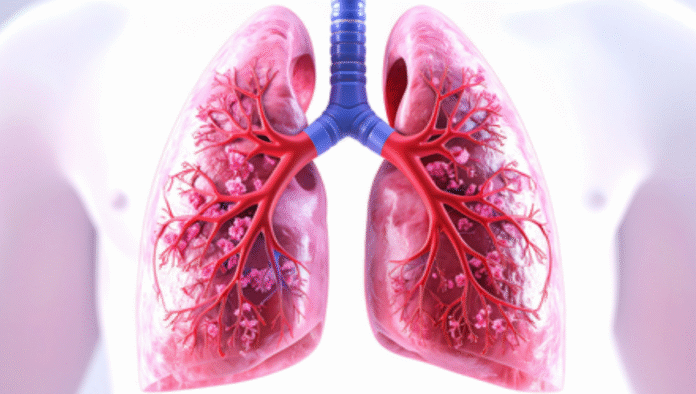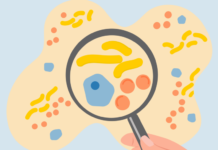NEW DELHI– A new antibody-drug therapy developed in China has shown encouraging results in the first human trial for patients with relapsed small-cell lung cancer (SCLC), one of the deadliest and fastest-growing forms of the disease.
SCLC accounts for roughly 10–12 percent of lung cancer cases worldwide and is notorious for its limited treatment options and poor prognosis. According to the International Agency for Research on Cancer, more than 2.4 million people were diagnosed with lung cancer in 2022.
Researchers at the Affiliated Cancer Hospital of Shandong First Medical University tested a drug called SHR-4849 (IDE849), a Delta-like ligand 3 (DLL3)-targeted antibody-drug conjugate (ADC). The therapy combines a humanized anti-DLL3 monoclonal antibody with a DNA topoisomerase I inhibitor, linked in a way that allows the drug to attack tumor cells with high DLL3 expression.
In the Phase I trial, 54 patients with relapsed SCLC received SHR-4849 across five dose levels (0.8–4.2 mg/kg). Among 42 evaluable patients, the objective response rate (ORR) reached 59.5 percent, while the disease control rate (DCR) was 90.5 percent. Patients with at least 12 weeks of follow-up showed even higher response rates: 69.2 percent overall and 77.8 percent at the 2.4 mg/kg expansion dose.
Side effects included lowered white blood cell counts, anemia, neutropenia, and nausea, but no dose-limiting toxicities or treatment-related deaths were reported. Researchers noted that plasma exposure of the free toxin remained low, suggesting a favorable safety profile.
“This is the first-in-human study of SHR-4849, and the encouraging early data support further investigation of this drug as a potential treatment for patients with DLL3-positive relapsed SCLC,” said lead investigator Dr. Linlin Wang, who presented the findings at the 2025 World Conference on Lung Cancer, hosted by the International Association for the Study of Lung Cancer (IASLC).
Dose expansion studies are ongoing to determine the recommended Phase II dose, with researchers hoping SHR-4849 could eventually provide a targeted option for patients who currently have few effective therapies. (Source: IANS)














